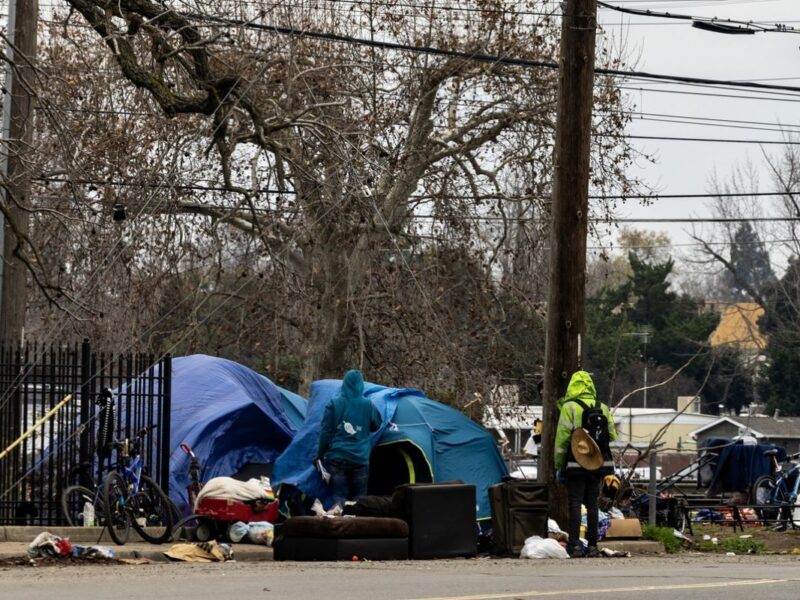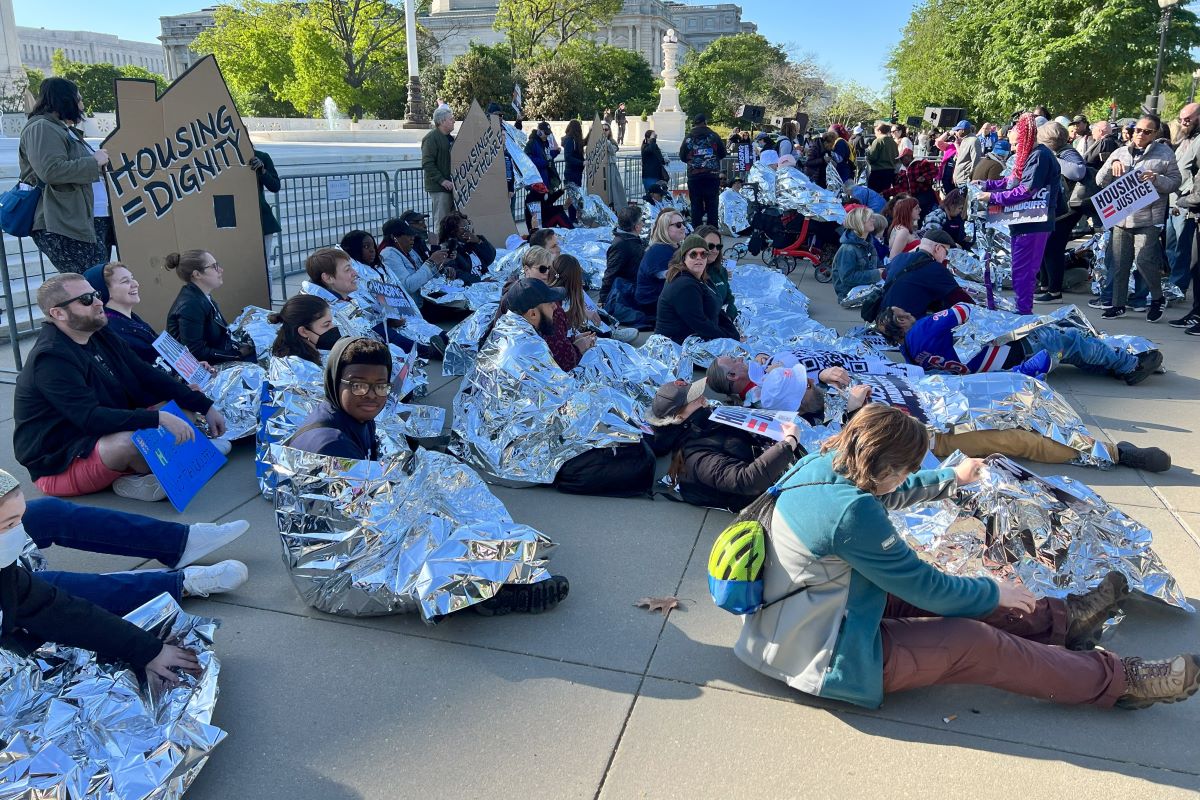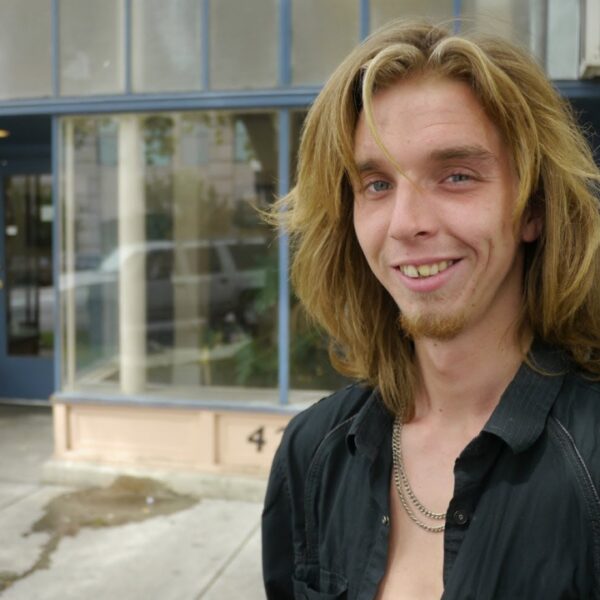Advocates Rally Against Criminalizing Homelessness, Push for Compassionate Housing Solutions
More than 500 activists, advocates, and concerned citizens rallied outside of the Supreme Court on April 22 to call on officials to stop criminalizing homelessness.
The rally happened at a time when the high court heard oral arguments in a case called Johnson v. Grants Pass, which could allow cities to use fines and fees to punish people experiencing homelessness. It seeks to overturn a precedent set by the case Martin v. Boise, in which the 9th Circuit ruled cities could not use punitive measures to punish homeless people when no shelter is available.
It also happened at a time when homelessness in the U.S. has steadily increased over the last five years. The latest federal data shows that more than 650,000 experienced homelessness on a single night in 2023, a 15% increase from 2018. Meanwhile, state legislatures across the country are passing bills that criminalize acts associated with homelessness, like sleeping outside, sitting, lying down, and sharing food.
The Supreme Court is expected to issue its opinion sometime in June.
“This case could basically decide whether I have a right to survive or not,” Mitch Garver, 66, a homeless veteran who attended the rally, told Invisible People.
Legal Challenge Threatens the Rights of Homeless People
The Johnson v. Grants Pass case reached the Supreme Court after nearly five years of litigation. It began as a class-action lawsuit filed by people experiencing homelessness in Grants Pass, Oregon, who alleged that the city’s practice of fining them for sleeping outside was cruel and unusual punishment.
Nearly 90 amicus briefs were filed with the court before the hearing. Briefs filed by advocates argued that accepting arguments from Grants Pass could have disastrous implications for people experiencing homelessness.
“Instead of taking meaningful steps to solve the problem, lawyers for Grants Pass traveled nearly three thousand miles to argue that the city has the right to jail and ticket its citizens for sleeping outside using a blanket or pillow,” Jesse Rabinowitz, the communications director for the National Homelessness Law Center, said during the protest.
Politicians Show Support for Penalizing People Experiencing Homelessness
Politicians like California Gov. Gavin Newsom and San Francisco Mayor London Breed have been fervently advocating for a reevaluation of court rulings restricting the sweeping of homeless encampments due to insufficient shelter space, notably endorsing the Grants Pass case. This fervor stems from their ongoing battle against the fallout of the Martin v. Boise decision, which the 9th Circuit Court of Appeals established in 2018, restricting cities from clearing such encampments without adequate shelter alternatives.
Governor Newsom, in particular, expressed discontent with the broad interpretation of the Boise ruling by federal judges, emphasizing the urgent need for Supreme Court intervention. Mayor Breed’s visible presence at a rally outside the 9th Circuit Court, where she condemned the ruling and pledged San Francisco’s commitment to taking decisive action, underscores the gravity of the issue.
Meanwhile, Grants Pass, Oregon’s City Manager, Aaron Cubic, has added his voice to the dissent, denouncing the Martin v. Boise decision as legally flawed and counterproductive to aiding the homeless population, as reported by Oregon Public Broadcasting last year.
Advocates Call for Compassionate Housing Solutions
The rally united advocates from across the country, with some traveling from as far away as Hawaii to attend. Ahead of the arguments, some advocates slept outside the Supreme Court, hoping to get a seat inside to hear the arguments and show solidarity with people experiencing homelessness.
Advocates like India Pungarcher and Chaplain Lindsey Krinks with Open Table Nashville, an interfaith homeless services nonprofit, said the court should reject Grants Pass’ arguments because criminalizing homelessness wastes taxpayer funds.
“For too long, our nation has gutted funding for public housing & thrown our tax dollars to policing and prisons,” Pungarcher and Krinks said. “We work for the day when all handcuffs are welded into house keys, where the jails are empty, and homes are full.”
Diane Yentel, president and CEO of the National Low Income Housing Coalition, said the case is “fundamentally about the kind of communities we want.” Grants Pass often issues fines of $295 to people sleeping outside. Those fines can spike to $540 when an individual cannot pay and can quickly snowball into thousands of dollars, she added.
“This misguided approach is more about removing people from view than fulfilling leaders’ duty to all of their citizens – housed and unhoused,” Yentel said. “And worse, it perpetuates a cycle of homelessness and despair that makes the problem harder to solve.”
Invisible People just visited the people currently experiencing homelessness in Grants Pass. Watch our documentary here.
How You Can Help Fight Anti-Homeless Legislation
In the face of a rising tide of anti-homeless legislation, we are engaged in a critical battle against misinformation and the criminalization of homelessness.
Across the nation, anti-homeless laws are advancing through legislative committees, propelled by secret votes, corporate funding, out-of-state lobbyists, and conservative think tanks like the Cicero Institute.
The pandemic proved that we need to rethink housing in the United States. It also showed that many programs designed to address homelessness are rooted in law enforcement rather than social services.
At this pivotal moment, we must make the truth louder than ever. Tell your representatives you support revamping how your city addresses homelessness. Handcuffs do not get anyone closer to stable housing. Instead, we must focus on compassionate solutions, the first step to ending homelessness.













